wake up babe, new fiction category (ANDROGENIC LITERATURE) just dropped
androgenic literature and its discontents
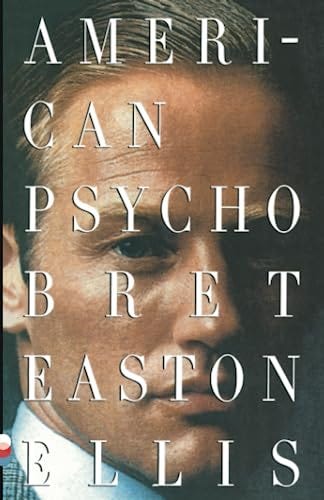
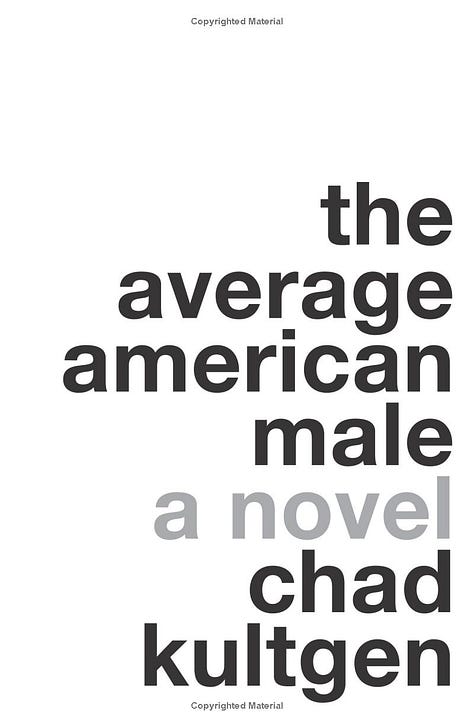

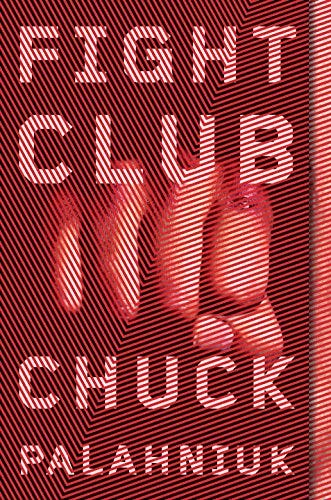



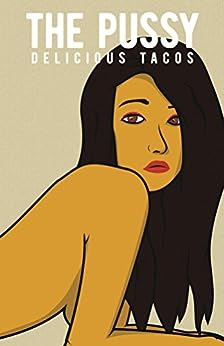

ANDROGENIC LITERATURE: 100% new and incredibly outdated
There’s a book from the late 2000’s that some of you may have encountered but many of you have not. I think it’s interesting, in part, because it represents an inflection point in popular (and therefore literary) culture that funnels into the here and now. Importantly, it’s an interesting contrast to the current moment of success that Delicious Tacos has found outside of the traditional publishing ecosystem.
Here’s an excerpt from the beginning that, for some of you, may provoke a strong response:
This book is called The Average American Male. It was written by a guy named Chad Kultgen in stream-of-consciousness form.
(Yes, his name is literally Chad).
It feels like something out of a time capsule, doesn’t it?
Would you be surprised to know that this book came out of a mainstream publishing house?
That it had its own successful viral ad campaign?
That its author, Chad, would go on to write various major hollywood movies without being summarily executed (in the metaverse) by a digital mob?
When is the last time you read a single slice of a novel that felt so completely displaced from cultural time?
To borrow a phrase from a former president—let me be clear. I’m not saying any of this in an attempt to cancel or shame Chad for the act of producing literary fiction. In fact, when I was young, I read several of his books, and I still think they accurately capture the psyche of millennial masculinity tethered to a very particular moment in American history. His fiction, if anything, has a very prosocial orientation and is as much a satirical critique of hypermasculinity and pornified hedonism as it is a representation of it.
(Yes, it is possible to do both of those things simultaneously).
The reason I’m digging this up because it shows how drastically publishing norms have changed.
Here’s an excerpt from The Pussy by Delicious Tacos, which you can skim for comparison:
The Average American Male came out in 2007. That’s 16 years ago.
Does 2007 feel as far away to you as it does to me?
Does it feel like a foreign country, with radically different cultural norms and boundaries?
Put another way: what is the difference between Chad Kultgen in 2007 and Delicious Tacos in 2023?
I can enumerate these differences as follows:
Delicious Tacos has to write under a pseudonym because a spatially-distributed mob has (already) tried to get him fired from his anodyne BigCorp job for writing fiction about being (a) male and (b) horny.
Delicious Tacos is self-published, and has not even bothered to attempt to have his work published by a traditional publishing corporation, which would be completely impossible.
Outside of old or self-published works, this type of literary character has been exterminated from traditionally published, contemporary literary fiction, and for many of us, that would constitute a completely understandable, reasonable response to the shift in moral norms that’s happened since the year that this book was first published.
The late 2000’s and early aughts leaned into a boorish, quasi-caricatured forms of masculinity—think Tucker Max, American Pie films, pickup artists, etcetera. This has all, of course, been displaced by what many might argue was a progressive reaction to this period of consequence-free, libertine promiscuity and the reintroduction of morality back into the sexual marketplace (MeToo, consent culture, and so on). There was, indeed, plenty to critique here.
Within the context of publishing, there was even a term for this kind of fiction: fratire. They made a wikipedia page about it.
We know from the data that publishing has undergone psychodemographic class-capture—in simple terms, it’s an industry dominated by upper-middle-class liberal white women (probably, even moreso than it was in 2007). And I think the excision of this type of fiction from the marketplace is, in large part, an inevitable outcome of current moral and cultural values of this group, and, if I am imagining myself in that position, I can’t say that I would be doing anything differently. Human beings act in their own perceived group interests and this makes it hard for artistic gatekeepers to promote things they find aesthetically or morally uncomfortable. This is normal behavior and to be entirely expected.
One habit I have is trying to imagine the moral system of another group from inside the base of its own axioms. The truth is that many of these things hold up relatively well, psychologically speaking. Regardless of what your preferred culture-war YouTuber says, moral systems are not meant to be logic problems that escape the polarity of any and all forms of contradiction. We are all carrying these in one form or another. It’s a feature, not a bug, of being a human being.
Yes, the female equivalent of this (if it can be called as such) still gets to be published. There is no point in whining about this asymmetry. Please do not infect me with your low-agency mindset and start complaining about this.
In the end, I think all sorts of reasonable moral arguments can be made about why this publishing corporations should no longer sell and distribute work about these kinds of male characters, characters who are now culturally associated with incels and even extreme acts of political violence on the margin.
I just think that, in the end, that these arguments are still wrong.
IMPLICIT MORALITY IS IMPLICIT IN EVERY WORK OF FICTION
Every novel contains within it an implicit morality.
In literary fiction, morality is always baked into the narrative’s framing. Even if it contains no implicit morality—even when “the point” of it is its own amorality—it cannot escape the gravity of a moral interpretation and moral critique, because amorality still falls within the broader domain of a moral system, definitionally speaking (yes, nihilism is a moral system). In prose fiction, the author’s model of morality is typically implied by the consequences of a character’s actions and how they are received.
To give one example: John Williams’ Stoner is a literary classic and one of the most moving works of fiction I’ve ever read. I highly recommend that you read it.
SPOILER ALERT BEGINS
It can be argued, not implausibly, that midway through the story the main character appears to rape his wife.
At the time of publication, the concept of marital rape didn’t have nearly the level of awareness that it does now. It wasn’t “a thing” in the way that it (rightfully) is now. The novel, while admitting to all sorts of different interpretations, does not seem to clearly grapple with the question of whether or not the main character is a rapist.
If that strikes you as a moral problem, then you are right.
SPOILER ALERT ENDS
Now, any text (including any novel) can admit all kinds of exegesis. This is true not only of religious texts. The beauty of fiction is that we can retrospectively analyze the story with this more modern moral lens, and critique it accordingly.
Our critique is an intrinsic part of the work, because all fiction exists only in the space of an individual person’s consciousness—which also contains its own moral response to the work in question.
Once a story exists in the wild, we can add our own morality to it as we please. That is what it means when the artist releases their work to the public: they relinquish control over its interpretation.
Because of the open-ended, generative nature of critique, the failings of any given fiction’s implicit moral system do not completely invalidate its artistic value. They can, at most, partially invalidate it. Even if you characterize an artistic work as possessing a moral failing, we can still always lower our own post-hoc morality over even the most radioactive ideas, like the Soviets lowering a concrete Sarcophagus over the melted reactor in Chernobyl. If we can do it for Shakespeare, we can do it for anyone else.
Taken too far, it’s possible to be disappointed in everything.
For instance: I’m a critic of American imperialism, which I think represents one of the pre-emintent threats of human extinction. I can consume all of kinds of fiction, getting angry about it, because American imperialism is everywhere. But unlike my experience of films, which are culturally dominant, I don’t spend much time getting upset about this when I’m reading a novel.
Instead, I apply a retroactive interpretative filter—my own—and read it on its own terms. Sometimes, when we are critiquing the moral failing of a piece of fiction, we are simply applying a category mistake. We are asking the wrong question.
But sometimes, you might say, something really pisses us off.
I’ll grant you that. However, even when a moral judgment of an artistic work is deemed necessary, demanding moral purity from artistic works is a self-imposed limitation. Fiction is an extremely remarkable technology. We can read symbols and hallucinate varieties of consciousness that are separated by space and time. If we apply a purity filter to every novel we come across, we close ourselves off from things that are valuable and interesting in their own right. We close ourselves off from the minds of others.
I read the works of my enemies, sometimes with gusto. A novel is a form of bottled consciousness. I seek to understand everything and everyone as much as possible, if only because I’m a curious species of primate.
One of my favorite books is Jarrett Kobek’s ATTA, a novella about one of the 9/11 hijackers. I would note that I can like this book and not support people flying planes into buildings.
It’s a superb, genius piece of work, and I suggest that you check it out. There’s an incredibly potent scene where Bin Laden expresses his intense love of volleyball to the protagonist and they play a game in an Al-Qaeda training camp. You could be a seasoned veteran of the GWOT and still find this hilarious.
Congratulations, you’ve achieved a millimeter of transcendence.
ANDROGENIC LITERATURE
I hereby propose a novel category of literary fiction: androgenic literature. Some existing works can be characterized as androgenic, but it’s also a category for the future of fiction—a future that will be increasingly determined by decentralized sources of artistic production that exist outside of centralized publishing and its relentless systems of homogenization.
It can be defined as follows:
Androgenic literature expands into the full space of heterosexual male consciousness.
Androgenic literature directly confronts the depth of male desire, hedonism, and its sexual voraciousness—ugliness and all.
Androgenic literature does not flinch from the male’s capacity for hatred and violence.
Androgenic literature may possess a sense of overt political morality—it can critique, ignore, or celebrate reactionary moral sentiments—but as a categorical whole, it is pre-ideological, and cannot be subsumed or defined by it.
I’ll close with the following excerpt from my own novel:






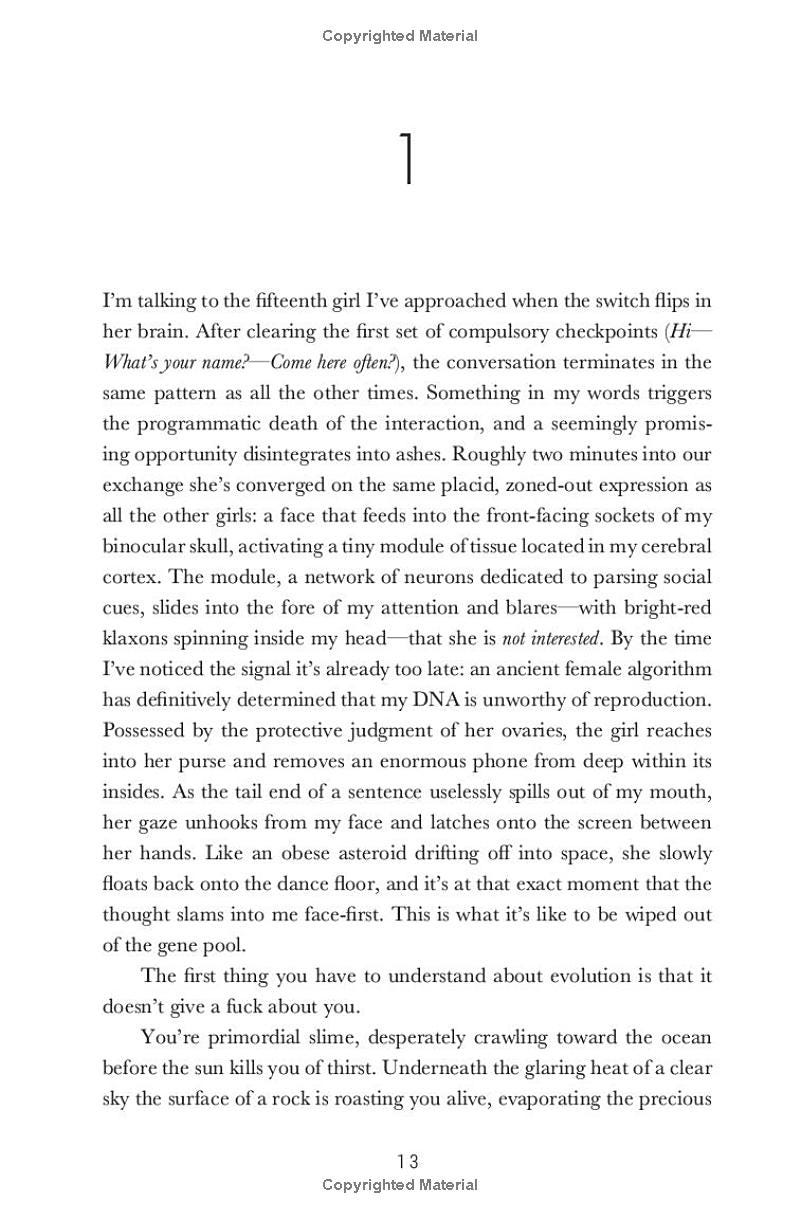
I like this a lot. The term androgenic literature should catch on! I think you can still publish it today, so long as it's written by a woman :) (a la the novel I am reading now https://www.amazon.com/Darryl-Jackie-Ess/dp/1944866841). I write YA lit, amongst other sidelines, and the boy of YA are utterly comical. They're so sexless, so gentle and docile. If you write even the best actual boy, he seems like a hopeless monster. I mean even Gandhi found his sexual urges to be an all devouring terror, against which he did perpetual combat (and arguably sublimated into psychological humiliation of his wife). And yet he was literally one of the best men who has ever lived
This is incredibly well written around a subject that most people fear to even get near the keyboard to confront. Also hats off to the execution and word choice, this piece could of easily came off the wrong way. They way that stirs the mob. Careful, original, yet blunt. Reality is filled with male thoughts and actions that are often hyper sexualized or violent, so those very ideas being absent from literature is what gives much of modern literature a flat taste. Bad things happen in life and art is part of life that reflects life. I sense that something is missing. Other ideas are so fixated in most modern literature I feel as though I am reading a Disney script that has been sanitized and bleached a little too hard. What's left feels like it may fall apart when subject to any amount of scrutiny. So many people comment on this, but they do it in a nasty provocative way that gets everyone nowhere fast. "I'll be back"
For more.